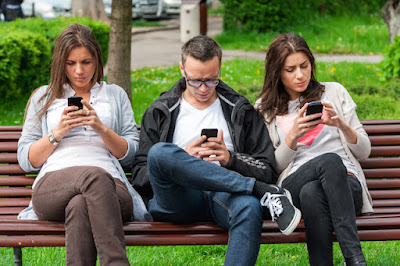Annamaria on Monday
How many times lately have you heard a warning that the news report you about to see or hear contains words or images that may be upsetting? Those admonitions are meant to avoid intensifying a pandemic of depression. The World Health Organization data shows that melancholia is the world's fifth leading cause of death and disability. We might be tempted to think that, in the wake of Covid, this is happening for the first time. But that is not true. Today, I offer some historical facts about depression, and I hope my conclusions will shine some light on this particular gloom. Here below a quick summary of what many experts say about this subject. Caveat: A lot of what I have to say amounts to gross generalizations. I do hope, though, to provide some insights. Or at the very least, food for thought
The first epidemic of melancholy was detected at some point in the late 16th, early 17th centuries. It was during that period that the human race went through the beginnings of "modernization." Until that time, at least in European cultures, societies were stratified into workers, land owners, and the ruling class. People knew where they belonged and thought of themselves as a permanent part of a group; religion reinforced the pecking order, and cultures also provided release with rituals and festivities. Many of the latter were carnivals - frequent, if brief raucous periods of "anything goes."
But then, with the development of industrialization and widespread education, suddenly social climbing became a real possibility. People, men mostly, began to see themselves as individuals with a chance at social mobility. Consequently, people began to measure themselves against others and against the criteria for positions they hoped to achieve. By the 1600s, in England, one could buy self-help books instructing the would-be gentlemen on how to dress and comport themselves. This new kind of thinking can be seen culture of the time. Shakespeare's plays for instance are replete with characters who - within the story - are pretending to be something other than who they were born to be. Portia in Merchant of Venice, for instance, passing herself off as a judge.
During this period, festivals that allowed people to blow off steam began to disappear. Perhaps this happened because social climbing meant one had to stay constantly aware of the "was and was not done." Ambitious began to suffer from stress about their chances of success. And while anxiety was increasing, people had fewer and fewer opportunities to let go and release the pressure. Even dancing became a controlled activity. Ecstasy was out of the question.
Living spaces became organized into public rooms (drawing and dining rooms) and private rooms (studies and bedrooms), where one could stop being constantly on guard against committing a faux pas. This gave at least a modicum of relief, but still all that introspection lead many to feel completely isolated. Protestant sects played into the trend with tenets describing a judgmental, rather than a merciful God.
From the get go of these trends, people complained about melancholia, and attention was paid because concerned observers saw that depression was dangerous to the sufferer's wellbeing, even threatened lives.
Nowadays, in the aftermath of a pandemic that called for social isolation, depression and disconnection seem to be everywhere. Add to that technology that allows (even tempts us) to look at screens instead of each other. And keeps children indoor playing on computers instead of running around outside and making up games with other children!
The antidote? Easy to say. Perhaps difficult to achieve. The answer is open, relaxed contact with other people. Dancing with them. Cooking with them. Working with them to reduce suffering in the world. Trying with all our might not to take ourselves so seriously.
Most important of all is to be aware of the dangers to ourselves and those around us. And to seek help.




















Hear, hear, Annamaria. This is a fascinating summary of melancholia arriving with the birth of a new kind of self-awareness. I think Protestantism has a lot to answer for by making millions responsible for their own salvation! And I agree with you that more happy human contact is the answer. It worries me that people work at home instead of in offices, buy take-out food, shop online, watch TV instead of going to the movies, and generally isolate themselves. But perhaps the pendulum will swing back. We'll see.
ReplyDeleteSo great to find a kindred thinker in you, Kim. A lot of what I read referred to an excess of self awareness and self judgement. Such lonely ways to occupy one’s time. We writers at least have our imaginary friends to take us out of ourselves.
DeleteOh dear. It's happening here too I think, with the loss of community spaces.
ReplyDeleteSo sad, Ovidia. It seems to me that we need shared spaces more than ever.
Delete